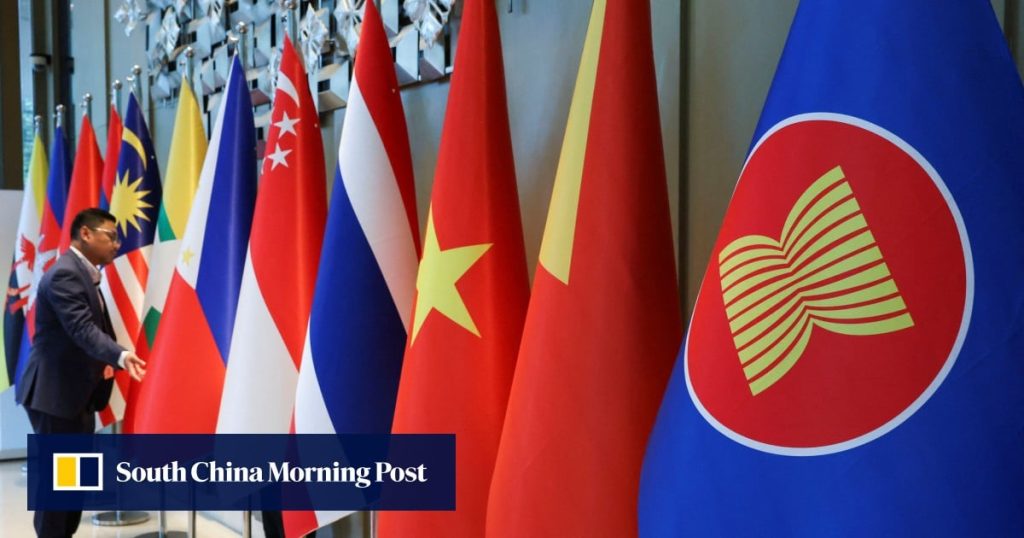As Asean looks to present a united front in response to US President Donald Trump’s tariffs, there is growing consensus among analysts that the region should diversify its trade and boost regional integration to deal with growing uncertainties in the global economy.
Countries in the Association of Southeast Asian Nations are among the hardest hit by the reciprocal tariffs announced by the Trump administration on Wednesday. Vietnam and Cambodia were hit with steep tariffs of 46 per cent and 49 per cent, respectively, while Indonesia was subjected to a 32 per cent rate, and Malaysia faced a 24 per cent rate.
Malaysian Prime Minister Anwar Ibrahim, who chairs Asean this year, said on Sunday that his country would “lead efforts to present a united regional front” in the wake of the tariffs and ensure “Asean’s collective voice is heard clearly and firmly on the international stage”.
Anwar also shared a Facebook post stating he had spoken with Vietnamese Prime Minister Pham Minh Chinh on the phone on Monday and held a meeting with Indonesian President Prabowo Subianto who flew into Kuala Lumpur on Sunday evening.
So far, Asean countries have not retaliated against the tariffs and instead urged for engagement with the US. Vietnam and Thailand have reached out to Washington for ways to reduce their tariff rates to protect their export-dependent economies.
Analysts warn that there is a risk that efforts by some Asean countries to appease the US may lead to competition among them to persuade Washington towards varying the original tariffs to their advantage at the expense of the region.


